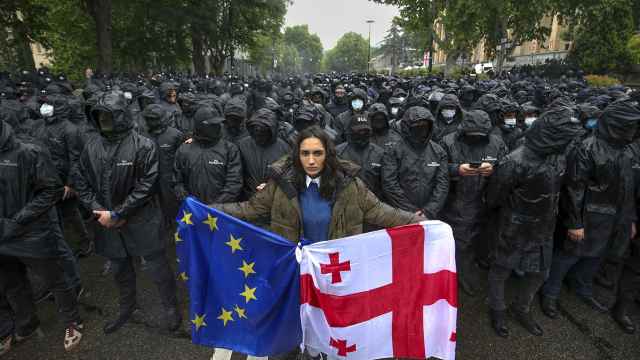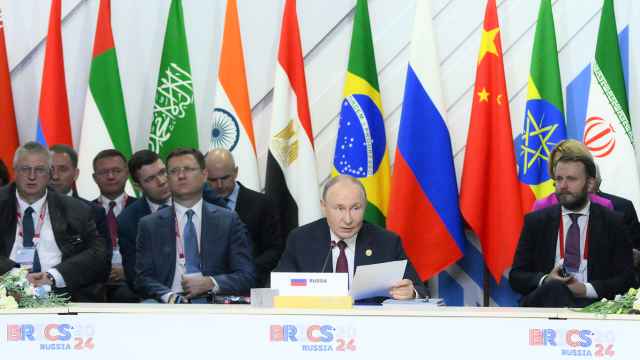On Nov. 17, Russian media watchdog Roskomnadzor issued an order to block the LinkedIn social network in Russia. Within a day, almost all of the country’s Internet providers had complied.
The tech giant is the first network to fall victim to an absurd law requiring all companies that utilize the personal data of Russian citizens to store that data on servers located on Russian territory. Although the legislation ostensibly went into effect on Sept. 1, 2015, it has only now been enforced for the first time.
LinkedIn under attack: Read more on Russia's rationale for banning LinkedIn.
In the frenzy surrounding the first implementation of Russia’s data localization law, it is tempting to predict Russia is headed in the direction of heavy-duty Internet censorship — the kind famously practiced in China. But this conclusion would be misguided. Russia is not China and Russia’s censorship of the internet is not the “Great Chinese Firewall.”
The reason is two-fold. On the one hand, Russia’s data localization law does not specify just how the social networks are supposed to identify the nationality of their users and the authorities. On another, they not committed enough to enforcing the vague law. The Communications and Mass Media Ministry has even issued a special clarification that essentially states that the law does not spell out the procedure for establishing a user’s nationality and that government agencies would have to proceed at their own risk.
Roskomnadzor’s attack on LinkedIn, the least popular Western social network in Russia, was an attempt to prove the agency’s relevance. As generally happens in Russia, the court dutifully upheld all of Roskomnadzor’s claims against LinkedIn and ordered the site blocked. Roskomnadzor employed its favorite tactic in this case, attacking a defenseless party for whom no one would rush to the rescue. The agency was confident that the millions of Russian LinkedIn users would not take to the streets in mass protest over the move.
However, since the data localization law came into effect, Romkomnadzor has proven itself unable or unwilling to block the more popular Facebook, Twitter, and the online services of Apple, Microsoft, and Adobe. The agency still lacks the teeth to act against them now.
Roskomnadzor is essentially only a paper tiger. It can block a relatively limited social network or implement measures complicating life for a small number of citizens, but it would never even consider acting on its own authority to block an international giant such as Facebook. Of course, if the Kremlin issues the order, Roskomnadzor will block Facebook within the hour. In the absence of such an order, however, the agency will maneuver quietly, out of the public eye, in order to achieve the next best thing: convincing the major social networks to come to the negotiating table.
Business isn't impressed: read more on Russian entrepreneurs' response to the LinkedIn ban.
“We’ll pretend to scare you,” they essentially say, “and you pretend to be scared.” Nobody is even attempting to play by the rules for the simple reason that there are none. These days, the so-called “Great Chinese Firewall” serves as the gold standard against which all internet censorship is compared. Russia may want, eventually, to turn the internet into an online replica of state-controlled television. But against the Chinese measure, its current system of censorship is a classic Potemkin Firewall — a flimsy façade with no substance or real stopping power.
Unlike Russia, the Chinese have kept their Internet closed off from unwanted outside influences from the very beginning. They commit tremendous resources to the effort because censorship is always an expensive luxury. According to estimates, tens of thousands of people work at regulating the Chinese Internet, and the authorities use complicated, yet subtle techniques and technologies to remove offensive content: censoring keywords, blocking individual posts, and intentionally spreading pro-government information.
Additionally, the Chinese Firewall is there not only to censor, but to protect Chinese IT and business interests. The Russian authorities have shown little intent to use the Internet for economic protectionism. By contrast, the Russian Internet has been wide open since the mid-1990s. This was never a state policy; rather, the state simply forgot about the Internet and only began devoting attention to it in earnest in 2012.
By Chinese standards, Russian efforts have been very weak. This late on, it will be difficult to close the floodgates.
David Homak is an IT entrepreneur.
A Message from The Moscow Times:
Dear readers,
We are facing unprecedented challenges. Russia's Prosecutor General's Office has designated The Moscow Times as an "undesirable" organization, criminalizing our work and putting our staff at risk of prosecution. This follows our earlier unjust labeling as a "foreign agent."
These actions are direct attempts to silence independent journalism in Russia. The authorities claim our work "discredits the decisions of the Russian leadership." We see things differently: we strive to provide accurate, unbiased reporting on Russia.
We, the journalists of The Moscow Times, refuse to be silenced. But to continue our work, we need your help.
Your support, no matter how small, makes a world of difference. If you can, please support us monthly starting from just $2. It's quick to set up, and every contribution makes a significant impact.
By supporting The Moscow Times, you're defending open, independent journalism in the face of repression. Thank you for standing with us.
Remind me later.







